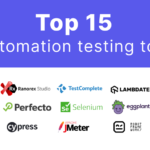At present, approximately 26.5 million eCommerce stores are active around the world, with many more being added each day. In this highly competitive environment, it is crucial for businesses to possess necessary tools and tactics in order to expand their eCommerce stores and stay prosperous.
But with so many available options, choosing the tools that meet your eCommerce business needs can be a challenging task. That is why, in this article, we’ll highlight six essential tools that can assist your eCommerce business’s effective expansion in 2024.
Advanced Analytics Platforms
Data-driven decision-making is integral to an eCommerce business’s success, so taking advantage of advanced analytics platforms offers invaluable insight into customer behavior, sales trends, and marketing performance.
These tools enable businesses to monitor key metrics like conversion rates, customer acquisition costs, and lifetime value—insights that allow for informed decision-making when optimizing strategies and operations. Utilizing such insights enables organizations to better understand customer preferences while pinpointing areas for improvement and maximizing marketing efforts’ efficacy.
Overall, advanced analytics tools empower eCommerce businesses to remain more cost-efficient and adapt more rapidly to changing market dynamics.
ERP Software
For eCommerce businesses, ERP software is a valuable tool that helps to organize and manage all activities across the supply chain in an efficient manner.
You will require a specific ERP software based on your niche. This is necessary for handling inventory, order processing, production planning and financial management. So, if you are involved in the fashion industry for example, then it’s important to use fashion ERP software that can help you improve your workflows while also reducing lead times – all without any concern about doing heavy lifting yourself.
ERP software gives eCommerce businesses the ability to have a clear view of important metrics and automation. This helps them stay flexible, react quickly to market changes and stay competitive in the constantly changing business world.
Social Media Tools
When you consider that there are more than 5 billion users on social media platforms across the globe, it becomes clear how important it is to be present and active in this space. There are several platforms that will aid your success, with Instagram and TikTok being among the best. They offer tons of free features, and TikTok also has a short video feature that’s just enough to grab your potential client’s attention. However, to truly stand out and enhance your marketing efforts on social media, it is important to invest in third-party tools and services.
For instance, if you’re looking for ways to boost followers on TikTok, investing in the best TikTok growth services and tools can help you gain traction on the platform. These professionals use organic methods to attract real, relevant, and engaged followers to your account, which can ultimately help you increase conversions and build brand awareness.
AI-Powered Personalization Tools
Personalization plays a central role in increasing customer satisfaction and building loyalty within eCommerce. AI-powered personalization tools that use machine learning algorithms provide invaluable help for fully analyzing customer information.
These tools enable the delivery of tailored experiences seamlessly across channels, going far beyond product recommendations to tailor marketing messages that resonate with individual customers. This tailored approach contributes significantly to creating an experience for each shopper that is both seamless and pertinent, increasing conversion rates while encouraging repeat business engagements.

Inventory Management Systems
Effective inventory management is among the factors that contribute to the success of eCommerce businesses by reducing stockouts and speeding up fulfillment processes, therefore improving customer satisfaction. Inventory management leads to automation of key functions such as inventory tracking, order and shipping processing, and supplier connections.
Their use is instrumental as they offer real-time visibility of available inventory, automate replenishment processes, and enable the management of several warehouses or fulfillment centers with relative ease. When used competently, such tools help businesses enhance productivity, reduce possible errors in order processing, and ensure that products are delivered within expected timeframes, hence bolstering their success and sustaining customer loyalty.
Customer Support and CRM Platforms
Establishing exceptional customer support is key for businesses competing in eCommerce environments. Employing customer support or CRM platforms helps companies provide timely support across channels like email, live chat, and phone.
These platforms play a pivotal role in centralizing customer interactions and data, helping businesses foster stronger relationships with their clients and ensure proactive issue resolution. This results in enhanced customer satisfaction as well as loyalty.
By taking advantage of such platforms effectively, businesses can create an exceptional customer experience, increase retention rates, and experience sustainable growth in an already highly competitive eCommerce landscape.
Bottom Line
When it comes to growth in eCommerce, businesses need the right tools. In 2024, companies that use advanced analytics platforms, ERP software solutions for managing various business functions, social media tools to manage marketing efforts, AI-powered personalization tools along with inventory management systems and customer support plus CRM platforms will be at an advantage. Putting money into these tools and integrating them into your business’s operations can help you improve effectiveness, boost income growth, and offer incredible experiences that make clients keep returning for more.


